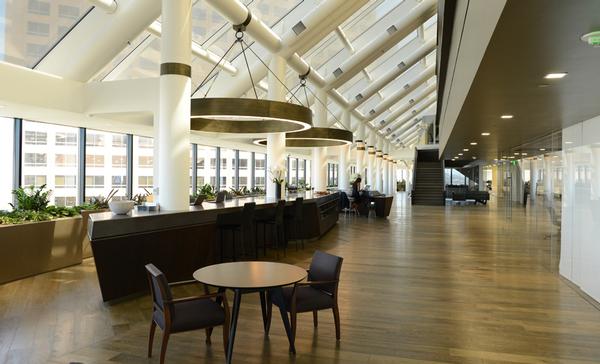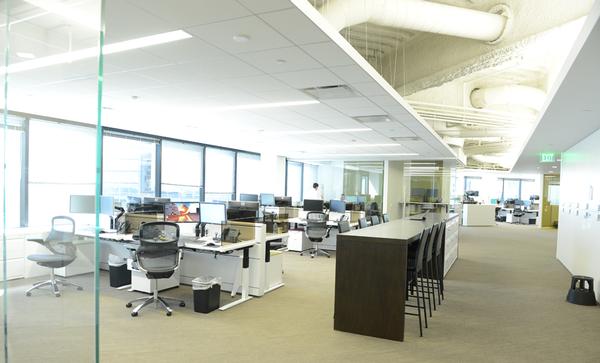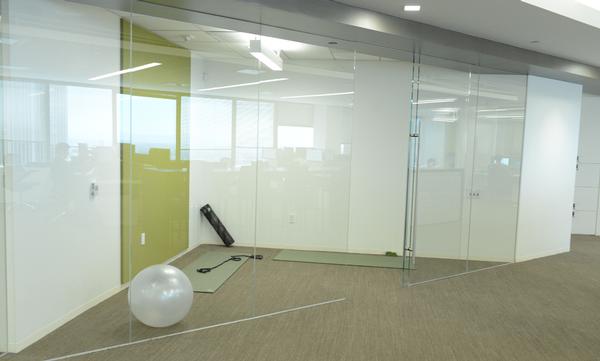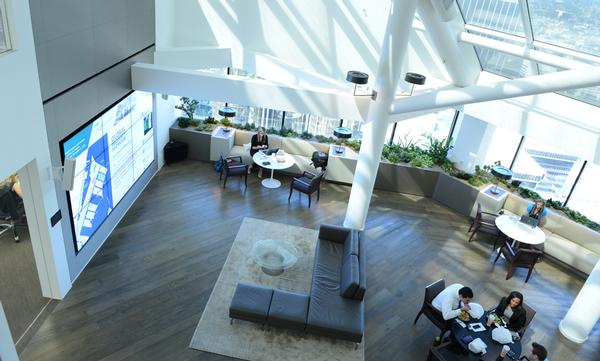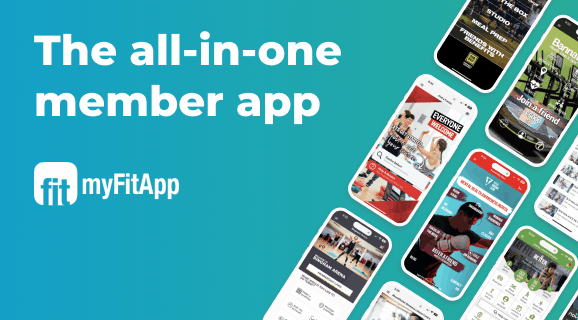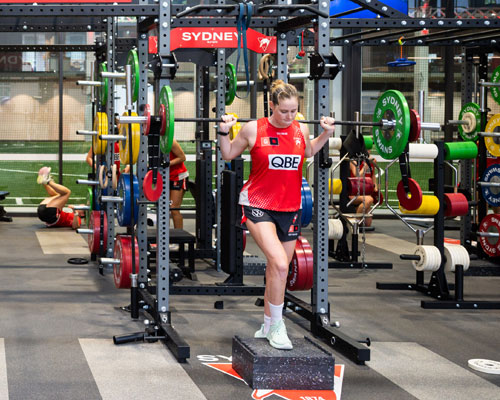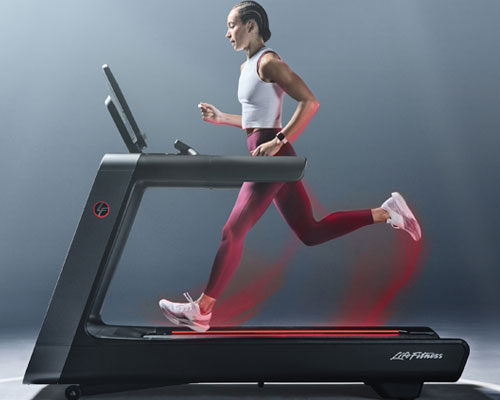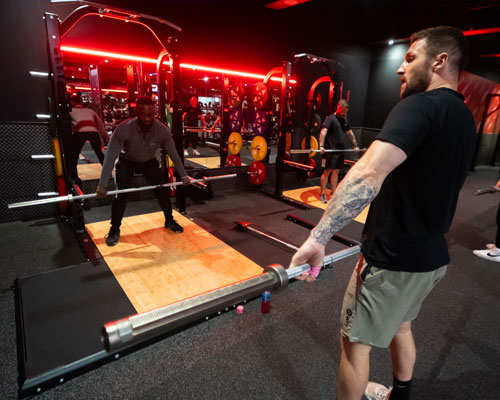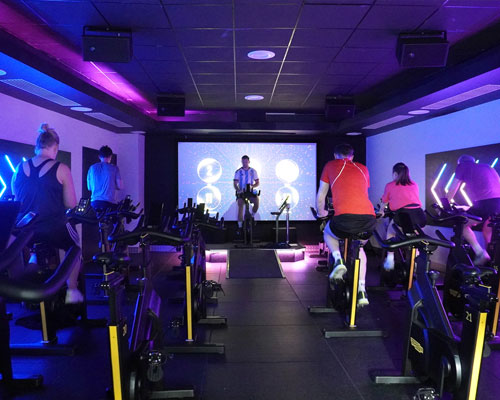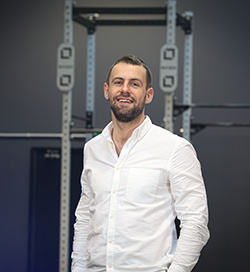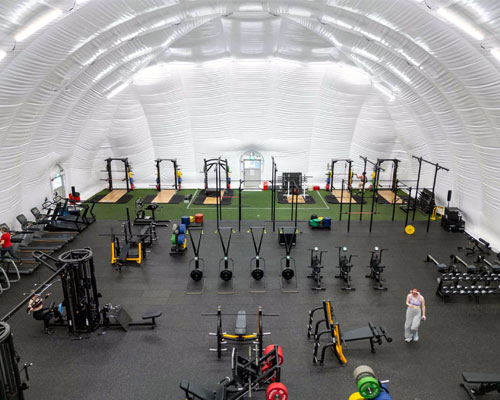features
Corporate wellness: Workforce wellbeing
Could your employees’ wellness contribute to the financial health of your business? CBRE’s Hannah Hahn reports

In downtown Los Angeles, the office of the future has already arrived in the shape of the world’s first ever WELL certified office. The office is CBRE’s global HQ, and it embraces every dimension of wellness and health in a work environment.
It’s aligned with the principles of the WELL Building Standard created by wellness real estate pioneer DELOS: air, water, nourishment, light, fitness, comfort and mind. And not only does it wholeheartedly embrace these elements relating to wellness, but an impressive 83 per cent of its employees say it makes a real difference to their productivity.
The CBRE headquarters does more than offer circadian lighting and biophilic ambient air to a passive staff. With its own dedicated wellness concierge, the company is also able to provide tailored health and wellness guidance for each employee to a level and a degree that suits them.
There are exercise and stretching zones for employees on each floor, as well as cardiovascular equipment. Multi-taskers can even use treadmill desks.
Ken Raisbeck, EMEA head of occupier advisory – advisory & transactions – at CBRE explains why the company has embraced wellness so wholeheartedly: “Our most important asset is our people, and by ensuring wellbeing is a holistic feature of our offices, we’re sending a message to our colleagues that we value their health. Our Wellness Certification is a demonstration of our commitment – but more importantly for us is the positive impact this has for our employees.”
Around the globe, other companies and corporations are also actively involving themselves in staff health and wellness, led from the front by the world’s big companies – the likes of Allianz, Barclays Bank, Omnicom, Nestlé, Novartis and The Bill and Melinda Gates Foundation. Indeed, in 2014, over half (56 per cent) of multinational employers had their own global health strategy, according to a survey carried out on behalf of Xerox.
Meanwhile, CBRE’s latest European Occupier Survey (EOS) also points to a workplace wellness trend. The 2015/16 survey polled real estate decision-makers at 120 globally renowned companies to understand their objectives, and associated challenges, across a broad range of issues. In this survey, around three-quarters (74 per cent) of companies reported having a wellness programme.
A tangible benefit
These companies have realised that workplace wellness is intrinsically linked to their financial bottom line. PricewaterhouseCoopers’ Building the Case for Wellness report, produced for the UK government in 2008 and revised in 2013, noted a number of Benefit-Cost Ratios (BCR) that might accrue to a company through its wellness programme.
One commercial company recorded a BCR of 34 – that is, a benefit to the company of £34 for every £1 spent on the wellness programme. The average, however, is a saving of £7 in previously lost productivity for every £1 spent on wellness programmes.
In addition, the EOS reports that two-thirds (67 per cent) of companies believe deploying a workplace wellness strategy enables better collaboration with customers and colleagues. In line with this thinking, at least one well-known American multinational technology company has reconfigured its global headquarters to enable collaboration and monitor and adjust elements such as room temperature and CO2 levels. The rationale: to think and act like a start-up, to increase creative thinking in the workplace and to promote employee satisfaction and wellness.
Other notable examples of companies already responding to the need for workplace wellness include: M&S – bearing down on absence - Retailer Marks & Spencer saw a 7 per cent reduction in sickness absence in the UK and Republic of Ireland in the opening month of its wellness programme, which won the Bupa Workwell Award in 2013.
Since the programme’s inception, more than 652,000 individuals – M&S employees plus other workers from across the company’s supply chain – have been trained in their own health and wellbeing, including healthy eating, exercise and mental health awareness.
The company’s focus was on ensuring that its wellbeing resource was invested in more than just the 3 per cent of employees absent from work; its goal was to capture both this group and the 97 per cent of employees attending work, with the goal of ‘keeping the healthy, healthy’.
The opening series of initiatives – including a weight-loss challenge and a 24-hour staff cycle endurance challenge – were promptly scheduled as annual events due to popular demand. These initiatives have now been expanded into a full calendar of events, including the Get Active programme and additional health services such as free early detection breast screening for female employees aged between 40 and 49 years (regular NHS screening currently supports women aged 50+ years).
On its wellbeing website, improved diet, hydration, sleep and exercise habits have emerged as staff’s most popular health pledges, accounting for 6,000 of its current 10,500 individual employee health pledges.
General Mills – boosting employees’ focus
General Mills, one of the world’s largest food companies – its stable of brands includes breakfast cereal Cheerios, Green Giant corn and Häagen Dazs ice cream – encourages mindfulness to help its employees manage their stress levels and focus on business priorities.
The company first experimented with mindfulness in 2006, running a trial course at its Minneapolis headquarters for 123 of its own business leaders. The results were described by the Financial Times as “striking”, with four out of five participants (83 per cent) saying they now take some time out each day to optimise their personal productivity.
Slowing down might intuitively seem to be anti-achievement, but the opposite is true. It allows focus and recharges the batteries, managing presenteeism, improving productivity and nurturing creativity. Global leaders agree, and today Apple, McKinsey, Google, Deutsche Bank and others offer mindfulness programmes.
Volkswagen and Daimler – helping employees switch off their engine. Our digital age has made it hard to switch off from work. In France, the government is currently in the process of passing new employment legislation that gives employees the “right to disconnect”.
But France is not alone in at least trying to address this growing issue. Similar legislation is also being developed in Germany, where car manufacturer Volkswagen recognises that, if it’s to expect excellence from its workforce, in return it has to offer them a great deal. Employees must share in the success.
For Volkswagen this includes providing the best possible working conditions, promoting employee health, and providing people with career prospects and development opportunities.
The company takes a holistic approach to health management which far exceeds standard health and safety in the workplace, educating employees in how they can stay healthy at work while at the same time motivating them to pursue a health-conscious lifestyle outside of work.
To combat today’s ‘always on’ culture, Volkswagen has had an email amnesty in operation since 2012, limiting access to work devices after core business hours for most of its staff.
And competitor Daimler has instituted an email auto-delete option for employees on holiday, to avoid the stress of being confronted by a full inbox and losing any benefit of that week on the beach.
Wellness: Here to stay For employees
All the signs point to a change in attitude on the part of business as far as the workplace is concerned. There’s a growing understanding of the connection between health and wellness and businesses’ bottom lines, as well as a change in employee expectations.
Demographic and technology trends suggest this is no flash in the pan. So the question becomes: how should companies respond, and how can the fitness sector benefit from this growing interest in workplace wellness?
Smart organisations will follow the lead of the likes of Volkswagen and M&S, introducing wellness programmes that will boost productivity and drive down cost.
But with so many new approaches to improve wellness in the workplace, the traditional approach of an on-site gym, or discounted gym membership, will no longer be enough. To realise the benefits of workplace wellness, organisations will have to be more holistic. Education and engagement will be critical.
This represents a huge opportunity for the health and fitness sector. By engaging in conversation with large, local employers, fitness providers are ideally placed to adapt to and act on these trends as they continue to develop, creating premium wellness services that are fit for the future and good for both businesses.
The six drivers of workplace wellness
1. Employees are living and working longer
Wellness plays an important role among an older workforce – and in many parts of the world, the workforce is ageing. Since 2005, the average life expectancy globally for both women and men improved by nearly two years. In turn, more of us are choosing to work past the historic retirement age.
2. Declining health and rising insurance costs
But while we’re living longer, we aren’t necessarily living healthier lives. Worldwide obesity has nearly doubled since 1980, and non-communicable diseases such as heart disease, cancer and diabetes now account for more than 60 per cent of all deaths worldwide. As a result, health insurance costs and ‘presenteeism’ are on the rise.
3. Wellness – a priority for talent
The global war for talent has been well documented – and in a 2014 study from CBRE and CoreNet Global, 80 per cent of employees agreed that the wellness offering of an organisation will be crucial to attracting key and talented people to, or keeping them in, an organisation within the next 10 years.
4. A heightened awareness of the effects of stress
Stress – a major cause of burn-out and depression – is experienced by most people during a normal working week, and it can be costly for business. According to a 2014 CoreNet survey, in the UK some 10.4 million working days are lost each year as a result of stress; affected employees miss an average of 24 working days per annum – over 10 per cent of their working year according to the Health and Safety Executive.
5. The ‘always on’ culture
The digital revolution has brought with it the pressure to communicate and respond around the clock. It’s estimated that people reach for their phone over 150 times a day and many of us rarely disconnect for fear of missing out. This presents many employees with a challenge when it comes to ‘de-stressing’ and re-charging for the next day.
6. The rise of technology to promote health management
A key point to note for fitness professionals is that, in the healthcare sector alone, the market for wearable technology is forecast to reach US$70bn by 2025. It’s no surprise that brands like Apple, Nike and Garmin are looking to take their wearable and biometric gadgets and apps – which already help us get fitter, faster and stronger – and extend the reach of these devices beyond the health club and into the workplace.
While this technology can capture real-time data on our pulse, heart rate and movement, and measure changes in our stress and energy levels – all potentially positive outcomes – the biggest obstacle for Apple and the others is how employers encourage staff on the shop floor to voluntarily use a gadget associated with personal and lifestyle activities as a work performance aid – and which might result in potentially negative consequences.
The smart money says we will increasingly see tracking technologies introduced and blended into the workplace, as early adopting employers use this technology to create supportive and desirable ‘destination’ working environments for employees, increasing productivity and reducing presenteeism and absenteeism. These forward-looking employers will also reap their own rewards as their investment in workplace wellness generates a positive return.

About the author

Hannah Hahn is the global workplace innovation manager in the German office of CBRE’s Workplace Solutions division. She is part of CBRE’s research and development team responsible for identifying emerging trends in society, key vertical markets and technology that support workplace innovation.
Commercial property and real estate services adviser CBRE Group is a Fortune 500 and S&P 500 company headquartered in Los Angeles, US. It’s the world’s largest commercial real estate services and investment firm in terms of 2015 revenue.
Its Global Workplace Solutions (GWS) division provides a complete set of services to corporate occupiers of commercial real estate across EMEA. This includes facilities management services for clients such as Nuffield Health.
For a copy of the CBRE Global Wellness in the Workplace report, visit: www.cbre.com/research-and-reports
